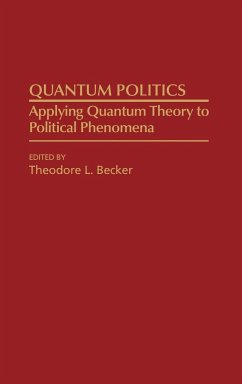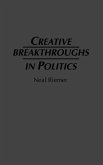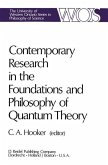Quantum physics, according to Theodore Becker, provides the means for replacing outdated eighteenth-century political and economic philosophies with a new paradigm more appropriate to our current understanding of physical reality. Becker had selected contributions by a number of political scientists who subscribe to the view that a Newtonian worldview is inadequate to explain today's political phenomena. These theorists believe that the laws and findings of quantum physics provide a more appropriate scientific paradigm. Becker terms intellectual forays exploring this hypothesis thought experiments. Together they comprise a major challenge to prevailing views held by the wealthy, government officials, and corporate executives. Newtonian theory, according to one contributor to this volume, is related to classic, liberal democratic thought and thereby to indirect, representative democracy. Quantum theory is linked with participatory democratic thinking--a more direct and purer form of democracy. The book moves from a discussion of the relationship of physical and political theory to an explanation of the meaning of quantum politics. One thought experiment argues that all political perception is subjective. Another shows why the quantum focus on energy instead of momentum yields a better gauge of political stability and entropy. Among the author's compendium of ideas from the perspective of the political quantum are: quantum theory provides the scientific basis for selecting representatives by random sampling; the hydrogen citizen only captures one electron in his or her lifetime; Marxism is the most ambitious child of Newtonian Europe; and the dogma of individual freedom is hardly more than a myth. The book will elicit serious reflection on fundamental assumptions by anyone interested in government, politics, or political science.








